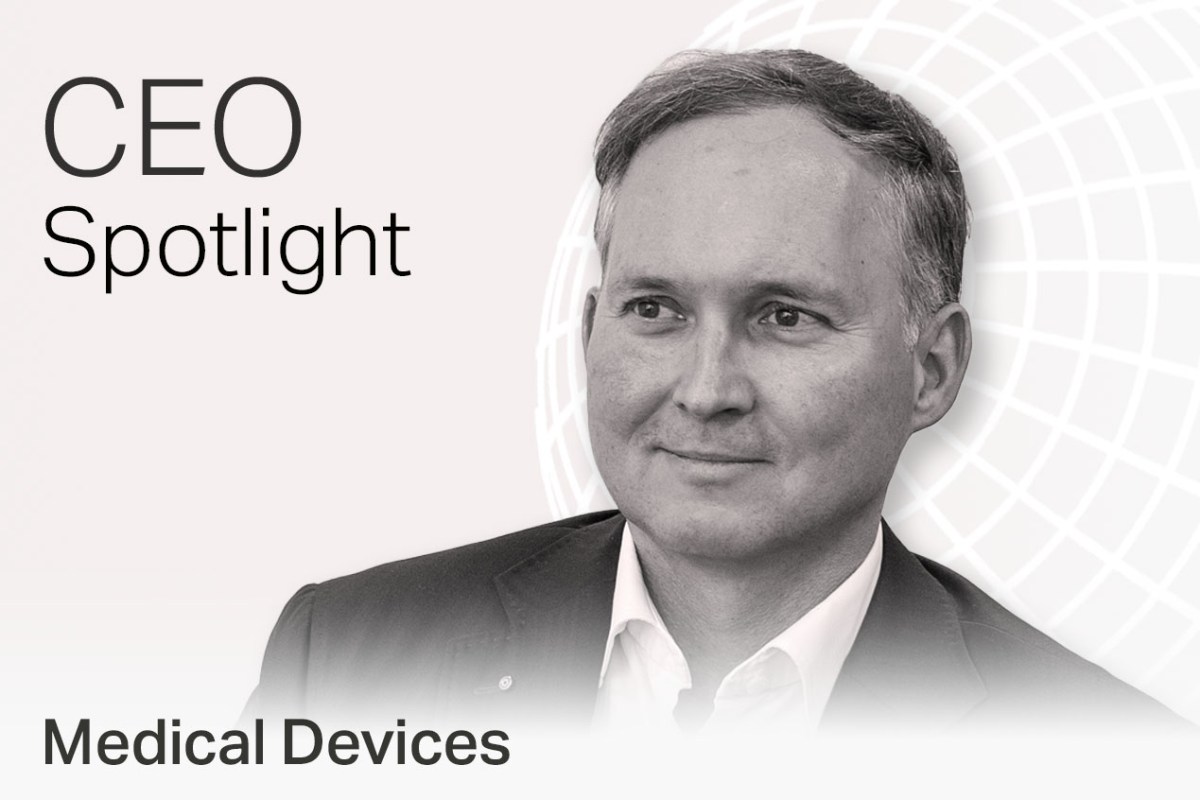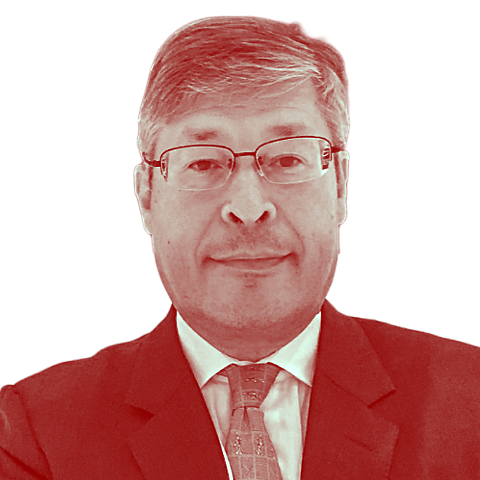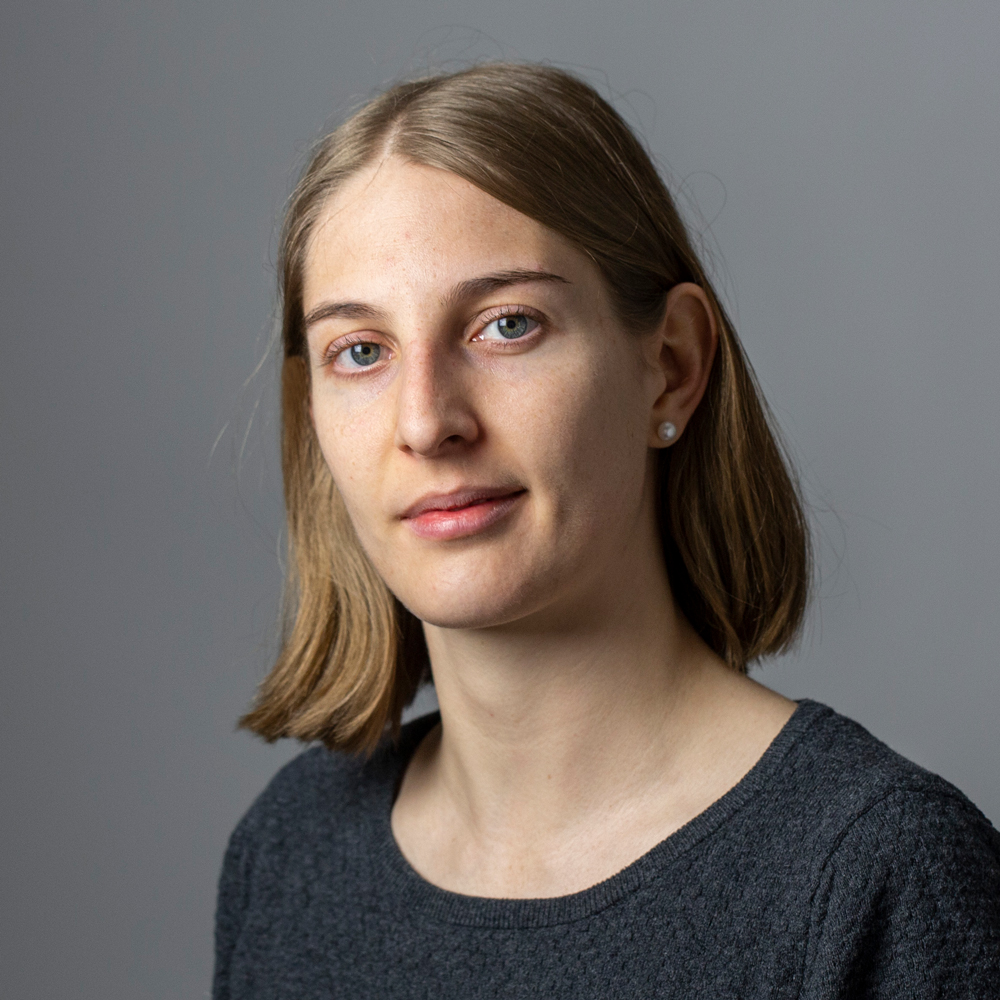Simon Michel has been the CEO of Ypsomed for over ten years. He also sits on the board of around ten other organisations.
Vera Leysinger / SWI swissinfo.ch
In an interview with Swissinfo, Simon Michel, CEO of Swiss medical device manufacturer, Ypsomed, explains why US tariffs represent only a limited challenge for his company and why he sees more growth from the success of GLP-1 drugs, blockbuster diabetes and obesity treatments such as Ozempic.
Ypsomed is a global leader in drug delivery systems, technologies that allow patients to administer medicines themselves, such as self-injection pens for type 2 diabetes and obesity. The market for injection pens is expected to grow 7.9% annually from 2024 to 2030, reaching $74.1 billion (CHF 64.5 billion), according to consultancy MarketsandMarkets. Swiss bank UBS forecasts sales of GLP-1 drugs will climb to $126 billion by 2029, reflecting the surge in chronic diseases.
Ypsomed has benefitted from this business environment. In May 2025, the company announced consolidated sales of CHF749 million for the fiscal year ending March 31, 2025 – a 38% increase compared to the previous year.
In addition to leading Ypsomed – his family’s company – since 2014, Simon Michel is also a Member of the Chamber of RepresentativesExternal link and serves on the boards of around ten other organisations.
Swissinfo sat down with him at Ypsomed’s offices in Solothurn to discuss challenges linked to US trade tariffs, competition and opportunities for his company in China.
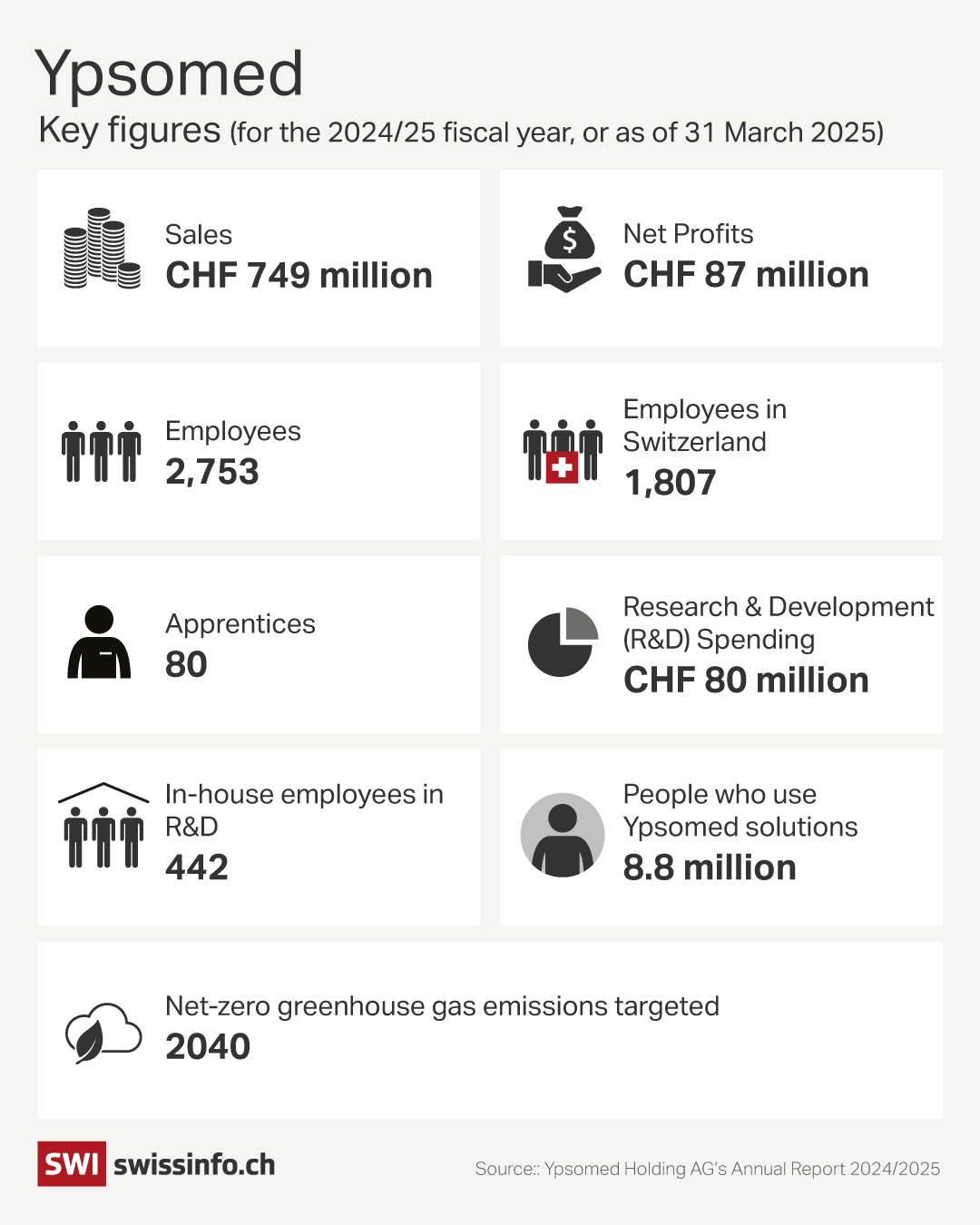
Kai Reusser / SWI swissinfo.ch
Swissinfo: Switzerland has been targeted with tariffs of 39% by the United States. How will this impact Ypsomed?
S.M: To a limited extent. The US market represents less than 10% of our sales. Half of these come from Germany, the other half from Switzerland.
Currently, we don’t manufacture in the US, but we decided – prior to the start of the second Trump administration – to begin local production for the US market in the second half of 2027. In the medium term, the share of the US market will rise to 20% of our sales.
Additionally, we sell based on the Ex-Works IncotermsExternal link, meaning we make the goods available at our factory or warehouse. Our American clients are therefore responsible for transporting goods from our facilities and covering all customs duties. We make it clear that tariffs imposed by US authorities do not justify price reductions on our side. This means it will be up to the client to take on the extra cost of importing into the US.
Furthermore, we have decided to transfer the execution of our US orders from our Swiss company to our German affiliate to avoid the 39% tariff.
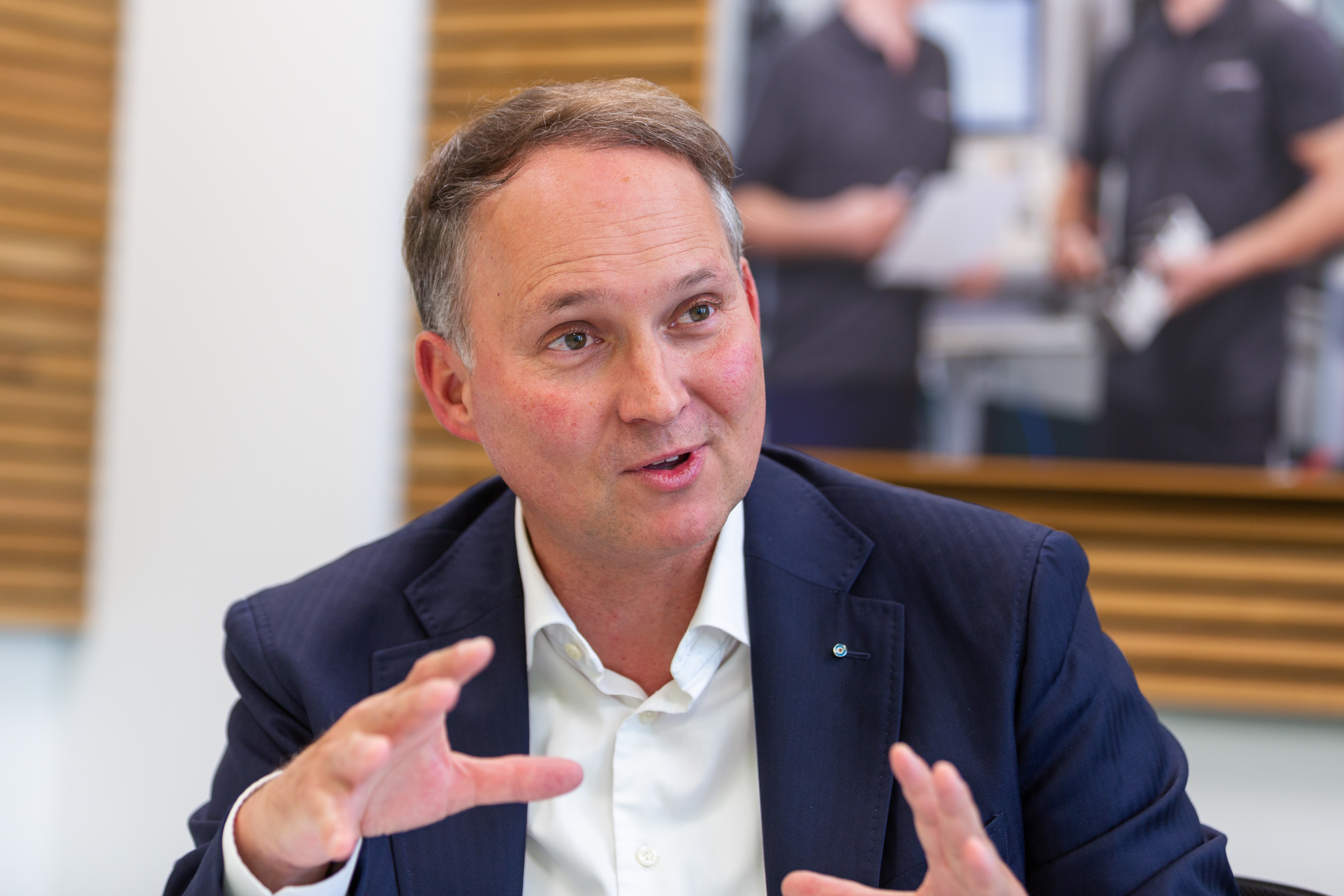
Simon Michel during the interview with Swissinfo at Ypsomed in Solothun.
Vera Leysinger / SWI swissinfo.ch
Swissinfo: What prompted you to start producing in the US?
S.M: The decision was driven by two factors: geopolitical risk mitigation and the goal of faster delivery to our customers in America. Supply chains are indeed becoming more regional. We also intend to significantly reduce the carbon footprint associated with long-distance transportation. We will invest slightly more than $300 million in our US site by 2028.
Swissinfo: For Ypsomed, how important are GLP-1 drugs increasingly used to treat type 2 diabetes and obesity? Market projections are extremely upbeat.
S.M: GLP-1 drugs offer a significant opportunity as they can be self-injected in liquid form using our pens. For the one billion people worldwide who are obese and at risk of over 200 related illnesses, injectable GLP-1 treatments remain the most effective option, offering by far greater efficacy than tablets, which can be effective for moderate weight loss.
Swissinfo: How do you assess the Swiss business environment, particularly for a medical technology (medtech) company like Ypsomed?
S.M: Switzerland has a well-organised medtech ecosystem, largely due to the efforts of Swiss Medtech,External link [Simon Michel is on the board of the organisation] the national association of medical technology companies. The sector includes around 1,400 companies, grows at twice the rate of Swiss GDP, and generates a trade surplus of 11%.
Moreover, this sector benefits from a favourable R&D (Research & Development) environment – rooted in the country’s watchmaking heritage, robust education system, and targeted tax incentives such as the patent box and the super-deduction of R&D costs.
Swissinfo: Ypsomed manufactures over 50% of its self-injection pens in Switzerland. What are the advantages of doing so rather than moving to countries where labour costs are cheaper?
S.M: As our R&D teams are based in Switzerland, it is important to maintain local production in order to facilitate close collaboration and learning in industrialisation and scaling up. Second, third and fourth lines can be located closer to our customers; for this reason, we have production sites in Germany and, more recently, China.
To protect our intellectual property, we retain some critical functions – such as tool design and manufacturing for plastic molding – exclusively in Switzerland. This know-how resides with a small number of trusted employees and is not documented in patents or trade secrets.
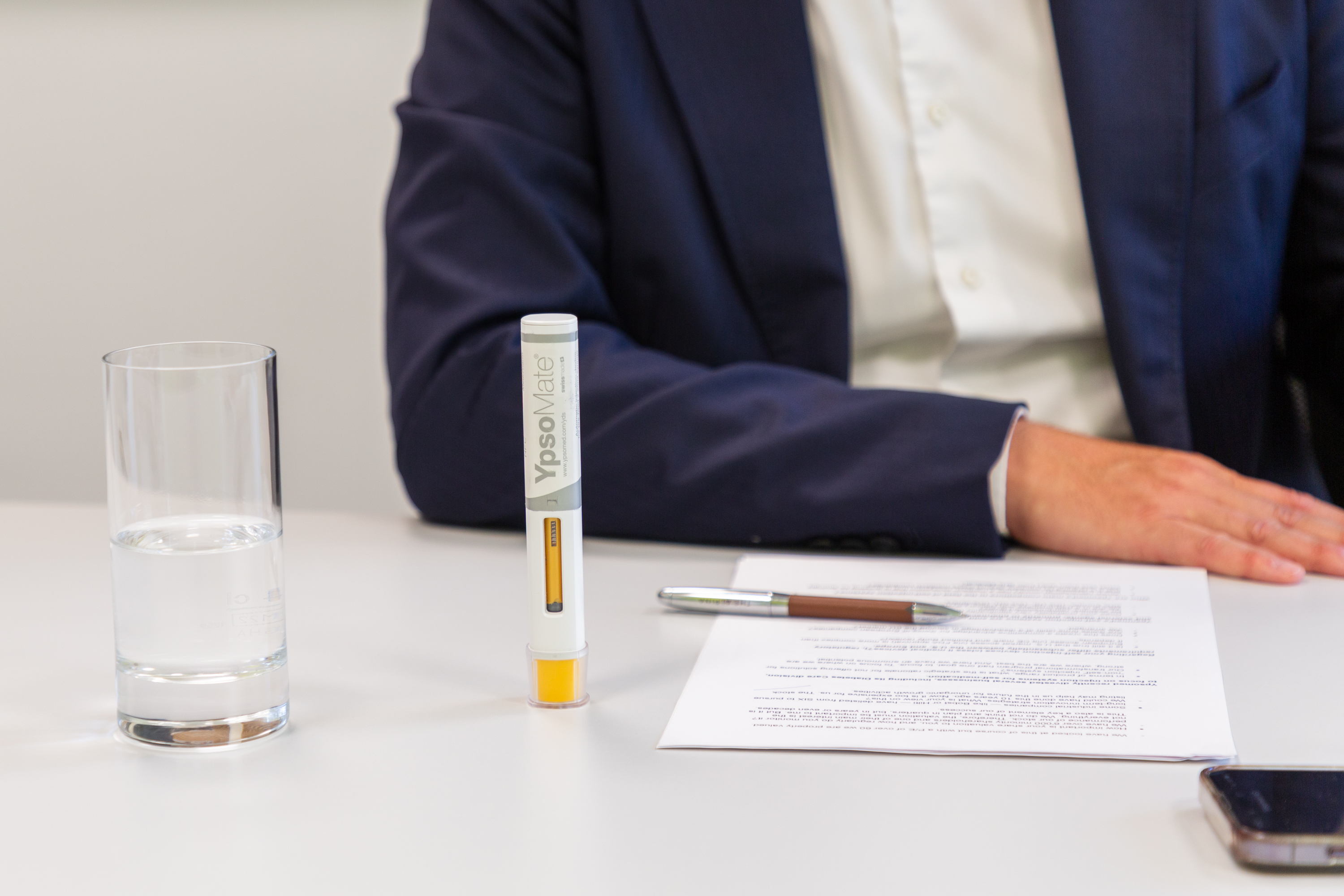
During the interview, Michel presents a self-injection pen from Ypsomed.
Vera Leysinger / SWI swissinfo.ch
Swissinfo: Do you plan to increase the number of employees based outside Switzerland?
S.M: We currently have approximately 2,000 employees working on our self-injection pens, with three-quarters based in Switzerland and the remainder working abroad –around 400 in Germany and 100 in China.
In ten years, we anticipate having around 2,000 employees in Switzerland, 1,000 in Germany, and 500 in both China and our new site in the United States. However, perhaps not all of our future employees in Switzerland will be “human” – some roles, particularly in R&D, intellectual property, and procurement, could be filled by virtual agents, or artificial intelligence (AI). We are investing heavily in AI, with dozens of initiatives underway.
Swissinfo: You just opened a production site in China. How significant is this market for Ypsomed?
S.M: China represents an enormous market in terms of both patient numbers and technological advancement. Our new facility in Changzhou’s high-tech industrial park, near Shanghai, meets the highest technological standards. In light of possible geopolitical risks [like the isolation of China], we’ve designed the site to operate autonomously without reliance on third countries, and including local management capabilities.
Swissinfo: Who are Ypsomed’s main competitors?
S.M: In the field of self-injection pens, two major players dominate: Ypsomed and SHL MedicalExternal link. SHL Medical is registered in Zug (Switzerland), but most of its core operations are in Taiwan. Smaller players also exist, particularly in China.
A decade ago, eight major players competed in this market. Ypsomed and SHL chose to invest heavily in modular platform technologies [similar to those producing series in the car industry], enabling the cost-effective development of customised solutions and faster delivery times. This strategy led to market consolidation and strengthened the position of Ypsomed and SHL Medical as market leaders.
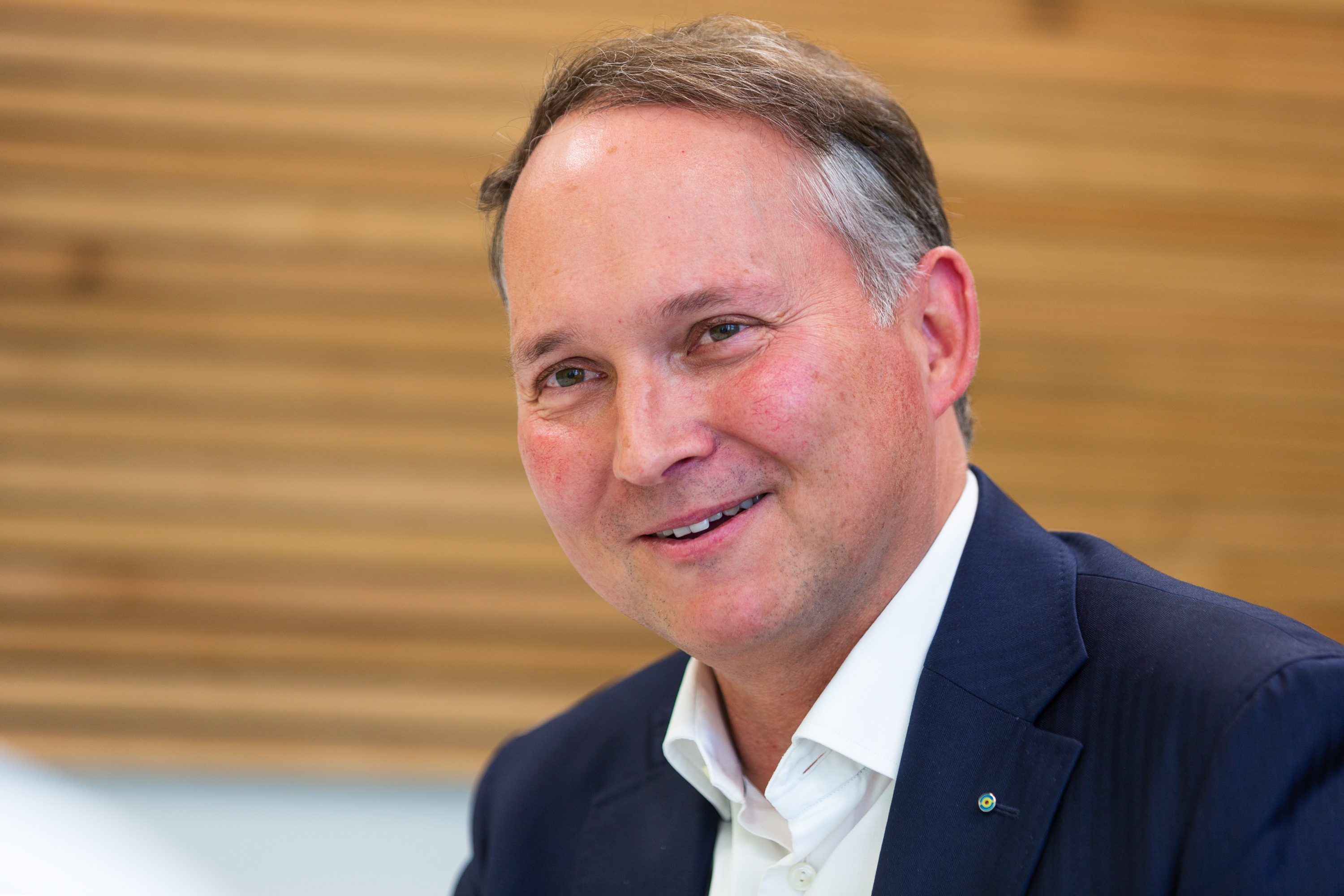
“In ten years, we anticipate having around 2,000 employees in Switzerland, 1,000 in Germany, and 500 in both China and our new site in the United States.”
Vera Leysinger / SWI swissinfo.ch
Swissinfo: 28.5% of Ypsomed’s shares are listed on SIX Swiss Exchange. Have you ever considered (dual)-listing on a foreign exchange such as Nasdaq?
S.M: We have considered it. As an international group, listing in the US is an option, but for now, it’s not necessary because the Swiss stock exchange provides ample visibility to medtech and pharma companies. We count over 6,000 shareholders, are covered by 10 financial analysts, and maintain a price-earnings ratioExternal link of 60. In addition, a US listing would incur annual costs in excess of CHF5 million due to SECExternal link (US regulator) guidelines and quarterly reporting obligations. Naturally, this does not align with our long-term strategy.
Swissinfo: Some companies like Bobst and Hilti, two B2B manufacturers have delisted to pursue long-term strategies. Is this something you would consider?
S.M: Ten years ago, when Ypsomed had a market value of below CHF1 billion, delisting might have been feasible. However, with a current valuation approaching CHF6 billion, it would now be too costly for my family to repurchase all the listed shares.
However, the fact that 28.5% of our shares are listed does not hinder our ability to pursue long-term innovation. Moreover, our public listing offers benefits such as increased visibility, rapid access to capital – for example, for acquisitions – and greater transparency. Our audited 150-page annual reports are highly valued by investors and major pharmaceutical clients alike.
Swissinfo: According to Swiss lawExternal link, there is a recommended minimum representation of 20% women in executive management and 30% on the boards of directors of listed companies. You don’t meet these quotas. What are you doing to increase the representation of women?
S.M: We do not currently meet these targets. Although I am personally opposed to gender quotas, we intend to comply with them by appointing women to replace male executives starting in four to five years’ time. Of course, I do not intend to restructure the existing executive team or create token positions solely to meet the legal targets. At board level, we are considering adding a sixth member to meet the 30% requirement.
This law was intended as a recommendation. However, non-compliance usually results in penalties from proxy advisors and major investors, such as BlackRock. This is particularly the case for fully public companies, as opposed to family companies such as Ypsomed.
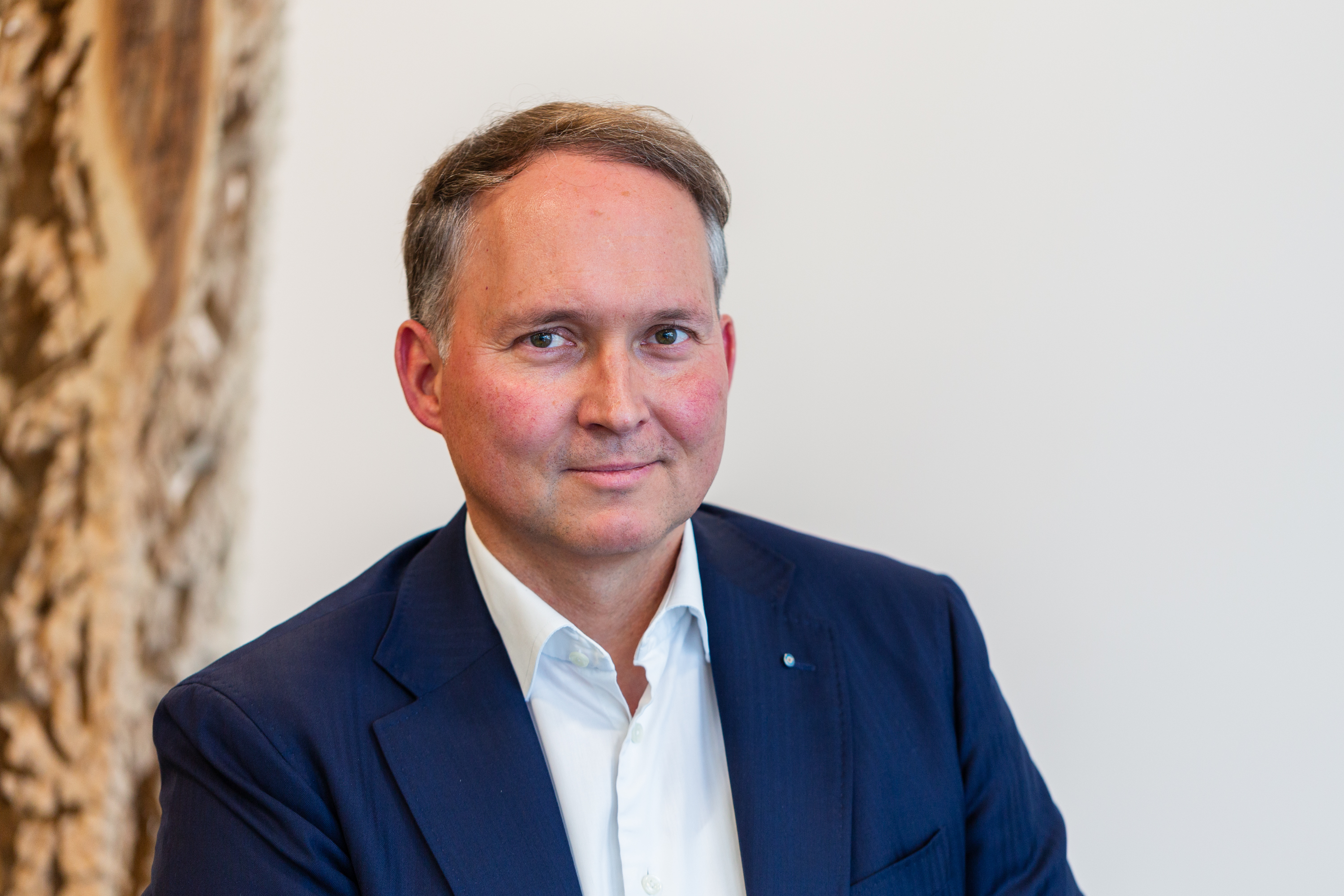
“I believe it is crucial for entrepreneurs to be represented in the Federal parliament.”
Vera Leysinger / SWI swissinfo.ch
Swissinfo: You hold multiple roles – as CEO of Ypsomed, member of the House of Representatives and of the Liberal Party and board chairman/member of about ten organisations. How do you manage to wear so many hats?
S.M: As CEO, I’ve built a strong leadership team, which allows me to delegate operational tasks. This was essential, especially last year, when our sales grew by 38% and we onboarded 800 new employees. Besides, my team is probably relieved that I’m not always around!
Being part of the family that owns Ypsomed also made it easier for me to pursue a political career. I believe it is crucial for entrepreneurs to be represented in the Federal parliament. As a side effect, my political role increases Ypsomed’s media visibility, helping the company to attract talent, investors, and clients.
Edited by Virginie Mangin/ds
